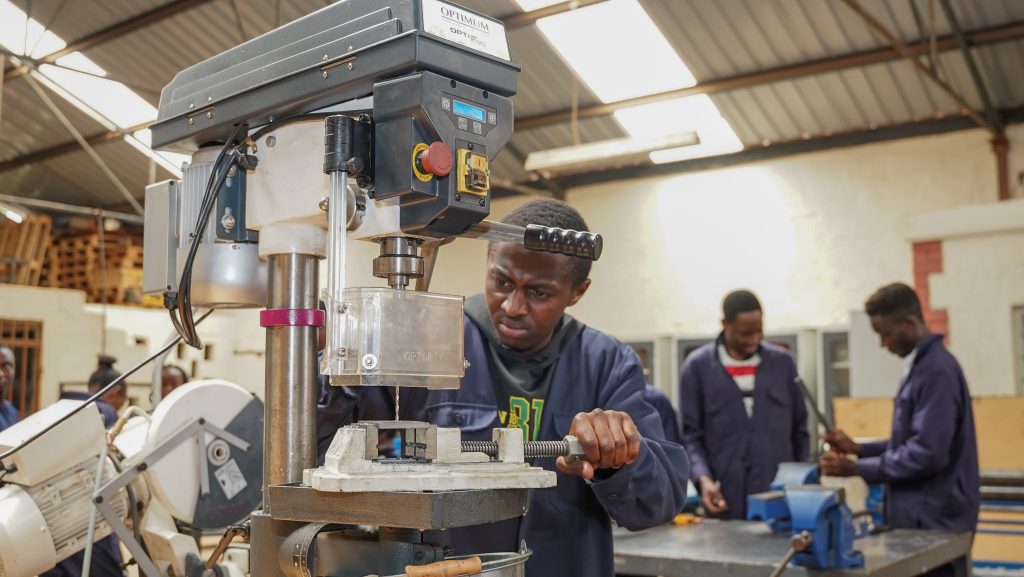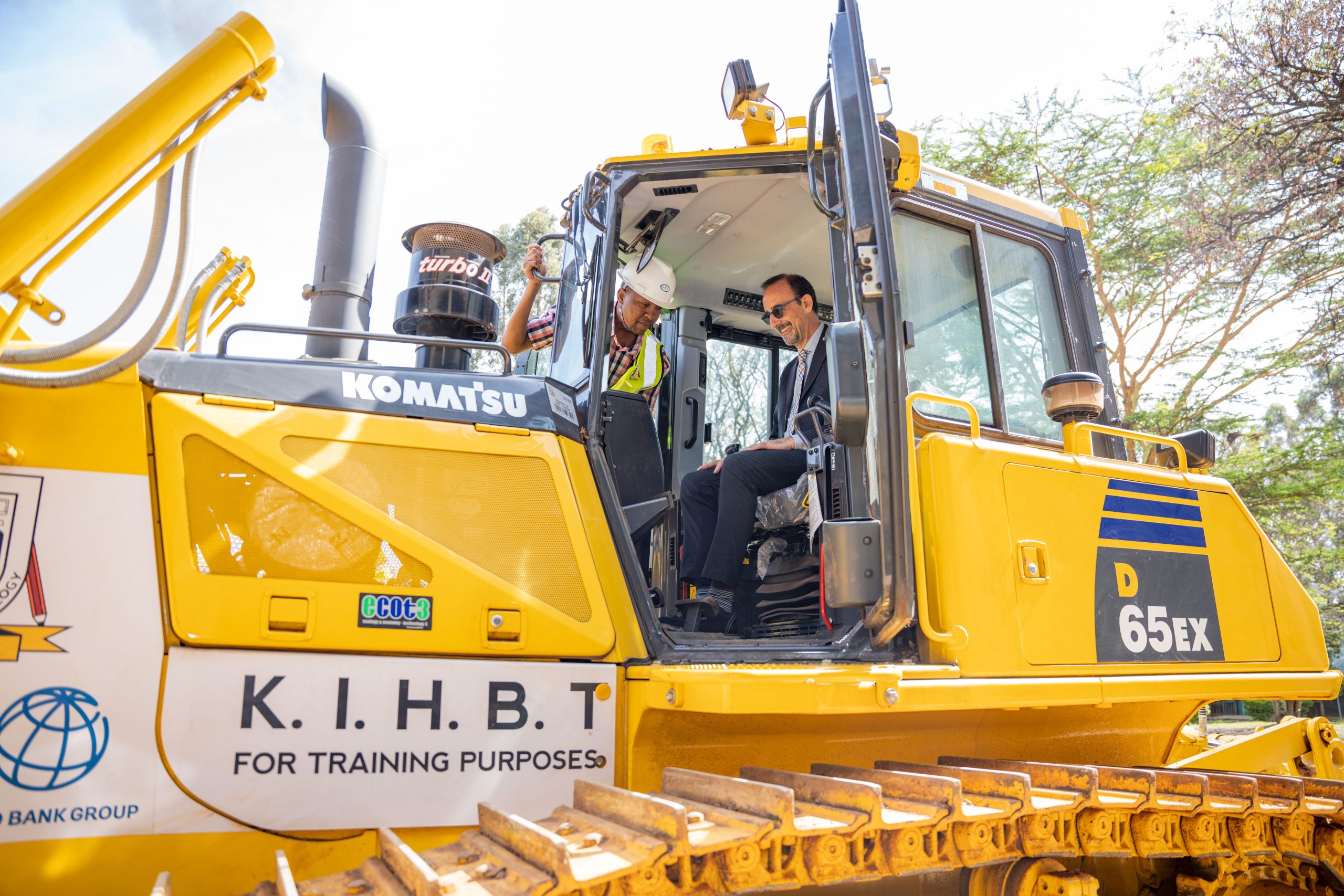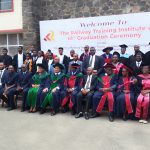World Bank Global Director of Education, Luis Benveniste at the Kenya Institute of Highways and Building Technology – Ngong Campus, one of the 16 regional flagship institutes in Kenya, Ethiopia, and Tanzania under the World Bank–funded East Africa Skills for Transformation and Regional Integration Project (EASTRIP). Graduate employment has risen to 80 per cent within six months of graduation. This is up from 47 per cent before the project began.
By Peace Muthoka.
Nairobi, Kenya, October 6, 2025 — Strong collaborations between industry and Technical and Vocational Education and Training (TVET) institutes across East Africa have led to a sharp rise in graduate employment, thanks to the World Bank–funded East Africa Skills for Transformation and Regional Integration Project (EASTRIP).
Graduate employment among 16 Regional Flagship TVET Institutes in Ethiopia, Kenya, and Tanzania has increased to 80 percent within six months of graduation, up from 47 percent before the project began. The gains are equally significant for women, with female graduate employment rising from 51 percent to 74 percent.
The results were unveiled during the Africa Skills for Jobs Policy Academy organized by the World Bank in collaboration with the Inter-University Council for East Africa (IUCEA) and held in Nairobi from September 30 to October 3, 2025.
“Our experience has shown that when we align training to the needs of industry, young people get jobs quickly,” said Dr. Cosam Joseph, EASTRIP Regional Project Coordinator at IUCEA. “Our 16 flagship institutes have partnered with more than 300 private sector companies to co-design curricula that reflect real industry needs.”
The 16 TVET institutes have developed over 500 new demand-driven programs, covering fields such as renewable energy, geothermal science, aviation, transport logistics, manufacturing, and hospitality.
In Kenya, the KenGen Geothermal Training Centre has become a regional center of excellence in geothermal technology. In Tanzania, the National Institute of Transport has launched aviation and logistics programs whose graduates are already working in regional airlines. Meanwhile, General Wingate Polytechnic in Ethiopia has expanded into manufacturing and leather technology, linking students directly with local industries.
“In aviation and the broader transport sector, we have partnered with airlines and logistics firms to design training programs. Our graduates are being absorbed by industry almost immediately,” said Eng. Dr. Prosper L. Mgaya, Rector of the National Institute of Transport in Tanzania.
“At KenGen Geothermal Training Centre, students gain real-world experience because we are part of an operational electricity generation company. This hands-on approach ensures our graduates are ready to step into critical roles in the renewable energy sector,” said Ms. Risper Kandie, Geologist and Centre Leader at the KenGen Geothermal Training Centre.

With support from the World Bank through EASTRIP, the KenGen Geothermal Training Centre has transformed from an in-house training unit to a fully-fledged regional TVET institute.
Across the 16 Regional Flagship Institutes, student enrolment has grown from 6,971 to 57,857, including 19,000 women — a major milestone in attracting female learners to technical fields traditionally dominated by men.
“We started with only six programs. Today, we run more than twenty industry-developed courses. The partnership model has made our graduates more employable and significantly reduced drop-out rates,” said Zekarias Gebre Belayneh, Project and International Relations Coordinator at General Wingate Polytechnic College in Ethiopia.
Employers have also acknowledged the transformation.
“Our collaboration with TVET Institutes in Ethiopia has bridged the gap between training and employment. We now receive graduates who are industry-ready because they were trained using real production settings and industry-designed curricula,” said Mr. Belachew Admasu Alemu, Managing Director of Sheraton Addis in Ethiopia.
EASTRIP is also fostering regional collaboration through the Regional TVET Qualifications Framework, which has established 204 mutually recognized qualifications. This enables graduates to work across East African borders without barriers, paving the way for a common regional labour market.
“The Regional TVET Qualification Framework allows employers in Tanzania to recruit TVET graduates trained in Kenya or Ethiopia, and vice versa, with confidence that their qualifications meet the required standards,” said Dr. Cosam Joseph.
Cross-border student mobility has also increased significantly, from just 31 students when the project began to more than 2,000 today.
“We have exchanged students and staff with other TVET institutes across East Africa. Students from Tanzania and Ethiopia have studied alongside Kenyans, exchanging ideas and building networks that will serve them for life,” said Mr. Evans Onyango, Head of Research and Innovations at Kisumu National Polytechnic.








